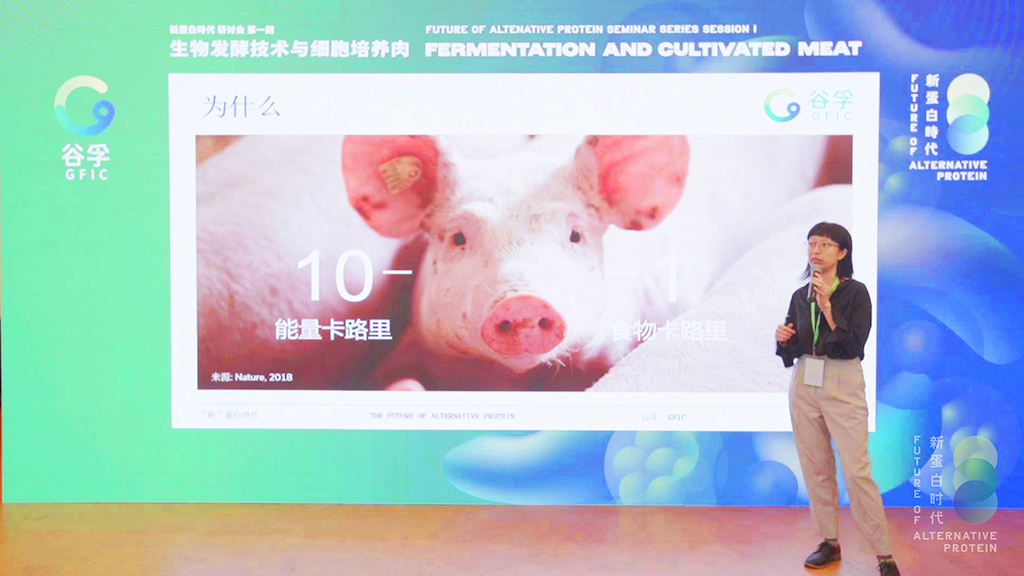3 Mins Read
Held last month in Shanghai, the GFI Consultancy’s (GFIC) seminar session on fermentation and cultivated meat marked the first event of its kind to take place in mainland China. It saw over 80 scientists, investors, food companies and policymakers come together to discuss the fermentation sector, which is fast establishing itself as a solid pillar alongside the fields of plant-based and cell-based in the wider alternative protein industry.
GFIC, the independent partner organisation of the Good Food Institute Asia-Pacific (GFI APAC) that is focused on accelerating the alternative protein revolution in mainland China, recently held their inaugural event series on the future of proteins. The first session, which took place between September 25-26, was dedicated to exploring fermentation and cultivated meat and represented the first of its kind in China.

“The alternative protein industry in China is truly at an early stage – so it’s important to bridge the knowledge gaps and enable all stakeholders to join hands in building the industry,” said Doris Lee, general manager of GFIC. “Along with the growing appetite for plant-based meat in China, we see fermentation as a next driver of innovation in alternative protein product development, as well as cellular agriculture’s potential to accelerate the transformation of the entire meat supply chain.“
Along with the growing appetite for plant-based meat in China, we see fermentation as a next driver of innovation in alternative protein product development.
Doris Lee, General Manager of GFIC
Over the course of the event, academics hailing from top Chinese universities spoke about the major research progress that is underway in fermentation. Among some of the key speakers who joined the seminar include Professor Jingwen Zhou of Jiangnan University, the leading Chinese institute for food science, and Dr. Shijie Ding of Nanjing Agricultural University who represents the science team behind China’s first cultivated pork that debuted last year.
Offering his insights on the timeline for the commercialisation of cell-based meats, Ding said: “In the next 5 to 10 years, cultivated meat will get out of the lab and eventually onto the Chinese consumer’s frying pan.” Ding’s sentiments echoed recent comments made by Josh Tetrick, the co-founder and CEO of plant-based egg brand Eat Just, who gave a “north of 15 years” timeline.

In the next 5 to 10 years, cultivated meat will get out of the lab and eventually onto the Chinese consumer’s frying pan.
Dr. Shijie Ding, Nanjing Agricultural University
Panelists also discussed the key challenge of regulation when it comes to bringing fermentation and cultivated meat to market in China. Wilfred Feng, senior counsel of law firm Dentons Shanghai, said: “China has its own pain points that need to be solved when drawing up regulatory standards for alternative proteins. Such as nomenclature in Chinese, how to differentiate cultivated meat from conventional meat remains debatable.”
Furthermore, the seminar shone a light on the food techs to look out for, who are taking action now to enter the Chinese market and take up the first mover advantage. Some of the companies highlighted include Hong Kong-listed Chinese gene and cell therapy company GenScript Biotech, who are exploring how to leverage fermentation technology for plant-based meat products, and MycoTechnology, a U.S.-based startup using mycelium fermentation to grow plant-based ingredient alternatives.
Lead image courtesy of Quorn.




